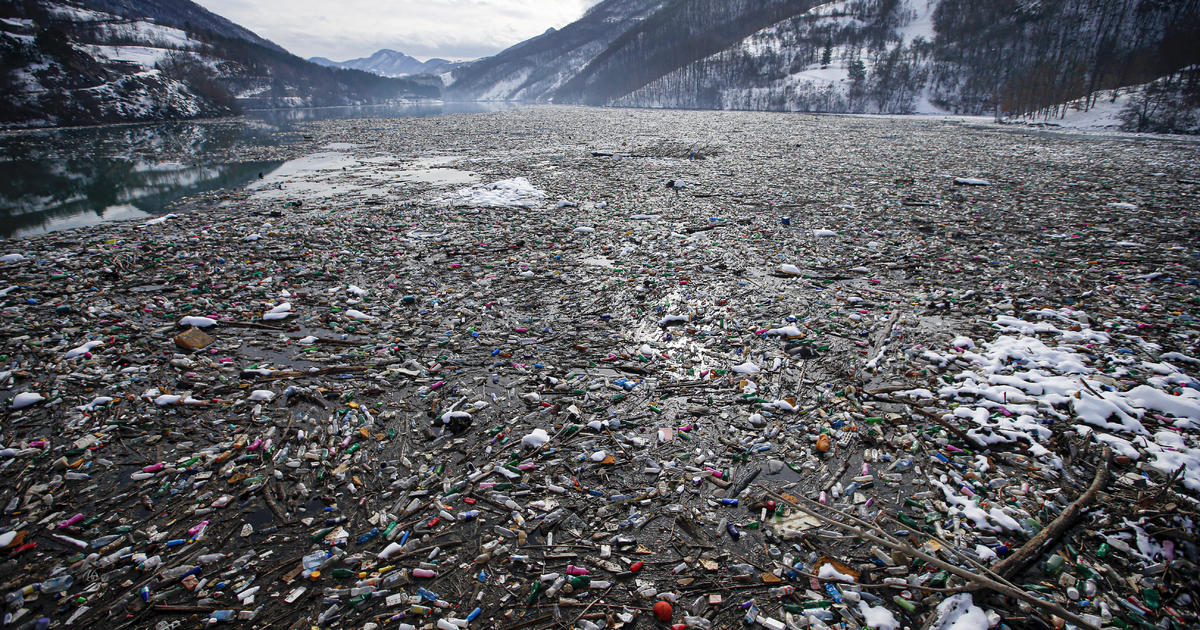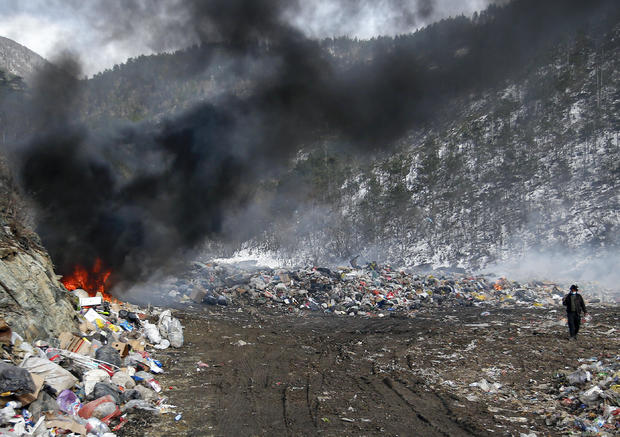
Darko Vojinovic / AP
Priboj, Serbia – Trucks and construction machines are parked on a river dam in southwestern Serbia, but not in front of construction works. Instead, huge cranes are used to pick up tons of trash crammed at the base of the power plant. Serbia and other Balkan countries are overwhelmed with municipal waste after decades of neglect and a lack of efficient waste management policies in the countries seeking to join the European Union.
Burning landfills can be seen from the roads, plastic bags hang from trees, and islands of trash float along the region’s rivers. The problem tends to come into play in the winter, when swollen water spills over landfills and pushes the waste into hydroelectric dams.
This was the case with the Potpec accumulation lake at the power plant after a wave of rainy and snowy weather in December and early January. The surface of the lake became covered with a thick layer of debris, ranging from plastic to rusty metal debris, tree trunks and even reportedly a coffin.
Darko Vojinovic / AP
The waste has been swept downstream by the River Lim, which feeds the Potpec Dam. The Lim originates in neighboring Montenegro and passes through several municipalities and their waste locations in both Montenegro and Serbia.
“Based on a recent study, we found that in these cities, in the five municipalities in Montenegro and three in Serbia, about 45,000 tons of waste is collected (per year),” said Predrag Saponjic, system operator of the Lim River hydroelectric power plant. . Looking at the garbage-strewn lake, he added that “even if only a fraction of that garbage ends up in the River Lim, we get this.”
Environmentalists in the Balkans have warned that because most landfills are not properly managed, they spill toxins into rivers, threatening ecosystems and wildlife.
Darko Vojinovic / AP
Bosnia has also reported a build-up of waste endangering the hydroelectric power plant in the River Drina, near the eastern town of Visegrad. The Lim is one of the tributaries of the Drina, through which their waterways – and waste streams – are closely linked.
The two emerald-green rivers – the Drina flows along the border between Serbia and Bosnia – are favored during the summer by adventurers and water sailors who enjoy the winding waterways and seemingly untouched nature.
While Balkan countries struggle to recover from a series of wars and crises in the 1990s, environmental problems often come last for those countries whose economies are far behind the rest of Europe and where public resources are vulnerable to widespread corruption.
Jugoslav Jovanovic, of Serbia’s state-owned company Srbijavode in charge of the country’s water system, blamed the waste problem on “our neglect and lack of concern”. Landfills are too close to rivers and become overcrowded instead of closed over the years, he warned.
Darko Vojinovic / AP
“If we are forced to do this year after year, then that is not really a solution,” he said of the clearing operation. “We need to find common ground and solve this by joining forces.”
Serbia, Montenegro and Bosnia have held meetings on this issue, but little has been done. The Balkan countries also face other environmental disasters, including dangerous levels of air pollution in many cities.
Experts predict that the clearing of Lake Potpec will take several weeks, depending on the weather. However, all the waste from the water ends up in a landfill in Western Serbia.
Darko Vojinovic / AP
Goran Rekovic, an activist from the nearby town of Priboj, said raising public awareness about pollution is an important goal, along with “institutional and systematic” solutions. These are also needed if Serbia and other Balkan countries are to move closer to EU membership.
“This is not the European Union’s obligation. We should not be doing this for them,” said Rekovic. “The reason we need to take care of our environment is for our own future generations.”




